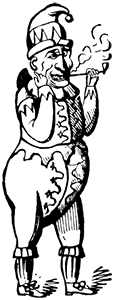Minimalistic fully-validating Unicode-aware JSON parser in C
Pronounced Jester, a pun at JSMN/Jasmin, the parser generates a read-only JSON DOM in a caller-provided buffer.
Parsing is destructive, i.e. the parser alters JSON string as it goes. This is
primarily used to terminate tokens with \0 characters. DOM node stores the value
(a C string) as a pointer into the JSON string. String escapes, ex: \n, \uXXXX,
are decoded in-place.
Incremental parsing is NOT supported. This decision allows to simplify the library's code significantly. Who needs incremental parsing, seriously?
Unlike JSMN/Jasmin, the world's sloppiest JSON parser (which touts itself as the world's fastest), Jester is not a joke! Non-string keys in objects are prohibited, every key must have a corresponding value, random unquoted literals are not allowed and inputs that aren't valid UTF-8 are rejected.
(Wonder how sloppy JSMN really is? Take a look at the numerous disabled tests in their testsuite!)
Consider a JSON snippet:
{"name":"root","id":0}The figure below depicts it as a C string (a cell is a byte).
The parser alters a JSON string as it goes. String escape
sequences are decoded in-place and \0 characters are
written to terminate tokens.
The next figure shows JSON string before and after parser invocation. Cells bearing a question mark have undefined value.
Caller provides the parser with an array of jstr_token_t
objects. This array ends up storing OBJECT, STRING, STRING,
STRING, NUMBER tokens. Primitive tokens store a C string value —
a pointer to characters — depicted with arrows in the drawing.
OBJECT and ARRAY tokens store the number of child tokens, making it
possible to skip subtrees efficiently. Note that skipping a subtree
yields the next sibling. The first child is the next token after
the parent. These two operations are sufficient to traverse a tree, hence
we are entitled to call our token array a JSON DOM.
This data structure is convenient for tree traversal, but modifications — insering a node, for instance — are NOT supported. Due to this limitation we call it a read-only DOM.
(Technically, since tokens don't require cleanup, a caller may mutate the buffer freely. Convert a JSON array of strings in a JSON DOM into a NULL-terminated array of pointers to characters in-place? Why not!)
void jstr_init(jstr_parser_t *parser);Init parser (opaque jstr_parser_t structure). No cleanup is necessary.
ssize_t jstr_parse(
jstr_parser_t *parser, char *json, jstr_token_t *token, size_t token_count
);Parse JSON data. Returns the number of bytes consumed on success. A negative return value indicates a failure. Possible failures:
JSTR_INVAL (-1) Parse error.
JSTR_NOMEM (-2) Token array is too small. Grow the array. Resume
the parser by calling jstr_parse again.
Token is an opaque jstr_token_t structure. No cleanup is necessary.
Token size matches the size of a pointer or exceeds it.
Use jstr_type function to get token's type:
jstr_type_t jstr_type(const jstr_token_t *token);
typedef enum {
JSTR_OBJECT = 0x01,
JSTR_ARRAY = 0x02,
JSTR_STRING = 0x04,
JSTR_NUMBER = 0x08,
JSTR_TRUE = 0x10,
JSTR_FALSE = 0x20,
JSTR_NULL = 0x40
} jstr_type_t;Use jstr_value function to get token's value (a C string).
Don't use with OBJECT or ARRAY.
const char *jstr_value(const jstr_token_t *token);Use jstr_next to skip all chidren of the token.
Works with all token types.
const jstr_token_t *jstr_next(const jstr_token_t *token);